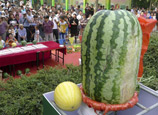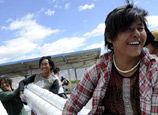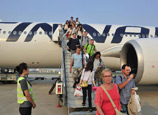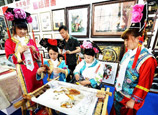
As demand slumps in debt-ridden Europe, the ASEAN region looks increasingly attractive for profit-hungry British corporates.
Recent data showed a 5.8 percent drop in UK exports to the European Union, underscoring the need for British businesses to look elsewhere for growth. Many have already done so - a good example being Diageo, the world's biggest drinks company, which famously set its sights on generating half its turnover in faster-growing markets by 2015. At 42 percent, it has nearly reached this mark, two years ahead of time.
Often forgotten in the excitement about China and India, the Association of South East Asian Nations is widely seen as the big growth story of 2013. Its prospects are the stuff of envy for struggling Western economies: rising incomes and spending, an abundant workforce and GDP growth easily outstripping the global average.
On top of this, ASEAN boasts a wide array of strengths: Brunei, Indonesia, Malaysia, the Philippines, Thailand and Vietnam are rich in natural resources. Countries such as Indonesia and Vietnam are strong contenders as alternative manufacturing bases to China, and Singapore is one of world's most sophisticated hubs for business and financial services. When Rolls-Royce invested in its first big aerospace manufacturing facility outside the UK, it chose to do so in the city state, making this ASEAN member its gateway to the fast-growing markets of Asia.
If it were a single economy, ASEAN (which also counts Cambodia, Laos and Myanmar) would be the world's ninth largest by GDP - bigger than India and Russia - and its third most populous with 600 million people.
A growing center of trade, ASEAN is increasingly where the action is, with corporates busy setting up distribution, sourcing and manufacturing to capture opportunities within the 10 markets and more widely across Asia. Strategically placed across important new trade corridors, ASEAN is part of the world's biggest regional trade agreement (measured by population) with China, India, South Korea, New Zealand, Australia and Japan. This ASEAN plus six grouping represents around a third of the world's GDP and almost half of its population.
Between 2005 and 2010, intra-ASEAN trade surged 55 percent, and ASEAN trade with the rest of Asia has continued to grow strongly.
In 2011, China overtook the EU as ASEAN's largest trading partner, emphasizing the attractiveness of ASEAN as a hub from which to connect with customers across Asia. Another good reason to put ASEAN on the map: it is on a path to economic convergence, with plans for an ASEAN economic community by 2015. While the plans are ambitious and some concrete achievements are needed to solidify momentum for ASEAN integration, trade is already one successful aspect.
Room for growth
The 10 members have come a long way since the Asian financial crisis of the late 1990s. Lower debt, stronger banking sectors and more robust balances of payments all help to cushion ASEAN against external shocks, as evident during the latest crisis. The Philippines was just upgraded to investment grade, following in the footsteps of Indonesia last year. And despite outperforming the rest of the world for years, ASEAN still has plenty of room for growth, with trade, a growing middle class, burgeoning consumerism and urbanization all acting as strong drivers.
Standard Chartered believes urbanization alone could yield a tripling of ASEAN's GDP per capita, and help it outpace global growth for years to come, as the less urbanized parts of ASEAN catch up with the likes of Singapore and Malaysia. This year, ASEAN growth is expected to reach 5.3 percent, against IMF's 3.3 percent forecast for the world. Not surprisingly, given the state of economies in the West, foreign investor confidence in the region has been growing steadily, with ASEAN attracting 7.6 percent of global foreign direct investment in 2011, up from 4.3 percent in 2006.
The recent efforts of Myanmar - once the world's biggest rice exporter - to reconnect with the world economy further strengthens ASEAN as a trade bloc and attractive base for multinationals including UK corporates. This year Standard Chartered has re-entered Yangon after a decade's absence. To us, as to many others, ASEAN and the wider Asia region is becoming increasingly important to our business.
As ever, nothing can be taken for granted. The 10 ASEAN member nations are very different, challenges remain on the path to economic integration and sustained growth is dependent on the right mix of fundamentals, policy and confidence. But, for now, all the excitement about ASEAN is well founded and UK corporates would do well to put the region on the map.
















 Developer razes historic Guangzhou structures
Developer razes historic Guangzhou structures


![]()
